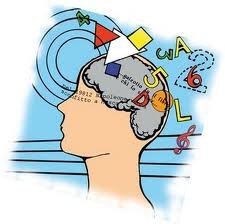MEMORY: WHAT TYPES AND WHAT HAPPENS WITH THE AGING
Supplements that aid memory

The memory is the ability of the brain to store information. The main stages of the memory are:
- Coding, processing the information received.
- The storage, the creation of permanent recording of the coded information.
- The recall, retrieval of stored information in response to some stimulus
We can classify different types of memory based on at least two criteria:
- The duration of the memory.
- The type of information stored.
1) Classification by duration of memory
The classification of the memory based on the duration of the memory identifies the following types of memory: sensory memory, short-term memory and long term memory. There is talk of sensory memory in the presence of a process capable of storing sensory information (auditory, visual, tactile, olfactory, gustatory) for the duration of a few seconds or milliseconds.
Some of the information in sensory memory can go in short-term memory, which can store up to a few minutes. Some of the information contained in the short-term memory can pass into long-term memory, which can store them for days or lifetime.
For example, if we listen to a random number of seven digits in a language completely incomprehensible to us, we can only repeat it immediately after hearing (sensory memory). However, if the number is pronounced in our language, the sounds are encoded in symbols that you can remember for a few tens of seconds (short term memory). On the other hand, we know our phone number because we have repeated many times (long term memory).
The prevailing theory argues that the sensory memory and short-term memory will be realized through transitional changes in neuronal communication, while the long-term memory is realized in the most stable changes in neuronal structure.
2) Classification by type of information
The long-term memory can be divided into:
- Declarative memory (or explicit) concerns the information communicated, that are recalled consciously.
- Procedural memory (or implicit) about the information on automatic behaviors.
Declarative memory can be further divided into episodic memory, which concerns information specific to a particular context, such as a time and a place, and semantic memory, which concerns ideas and statements independent of a specific incident. Autobiographical memory is a special case of episodic memory, which concerns episodes actually occurred to the same subject.
Procedural memory concerns especially motor skills and aural, that are learned through the exercise and used without voluntary control.
In the two memory types are different brain areas involved. While declarative memory is found chiefly in the cerebral cortex, are involved in procedural memory the subcortical structures.
Memory loss with aging?
Memory is a critical factor in the aging process is a weak part of the body, subject to the risk of weakening.
The loss of neurons (nerve cells) is a normal occurrence that takes place throughout life and in old age occurs at an accelerated pace. Between 30 and 75 years of age, brain weight is reduced by 10%, while around 75 years to get to 20%. At age 70 a person loses daily about 100,000 neurons.
Many other conditions can cause memory disorders: hypertension, diabetes, thyroid disorders, nutritional deficiencies (particularly those associated with alcohol abuse), regular exposure to toxins such as pesticides in agriculture or lead in paint. Even the inappropriate use of drugs, particularly tranquillizers and sleeping pills can cause memory problems.
However, there are some physiological mechanisms that compensate for this decline:at birth we are equipped with a quantity of neurons exceeds requirements standard; this excess of cells compensates, at least partially, the losses that occur with the passage of time.Another compensation mechanism is a kind of mutual aid that nerve cells with different functions can compensate for the damage caused in certain areas of the brain.
In any case it is essential to exercise the memory and use strategies to stimulate effectively: the skill that is not exploited, is lost.
Supplements that aid memory
